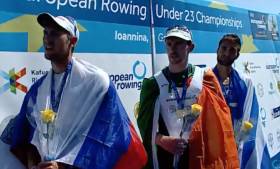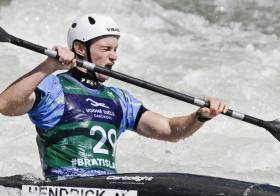Displaying items by tag: European Under23
#Rowing: The Afloat Rower of the Month for September is Ronan Byrne. On Sunday, September 1st, the 21-year-old Corkman partnered Philip Doyle to silver in the double sculls at the senior World Championships in Linz-Ottensheim in Austria. He then set off for the European Under-23 Championships in Ioannina in Greece. He won gold there in the single sculls, overhauling imposing Russian sculler Alexander Vyazovkin in the final to win by over a length.
Byrne was the worldrowing.com Rising Star for September.
The month was also a special one for Ireland’s masters rowers. Crews drawn from Irish clubs, often in composites, set a new record of 16 medal wins at the World Masters Championships, held this year at Lake Velence in Hungary. Denis Crowley was a part of many of those wins – he put together an astounding tally of eight medals at this one event.
Monika Dukarska, who qualified the Ireland women’s pair for the Olympic Games at the World Championships, won gold for Killorglin in the single, the double and the coxed quadruple at the Irish Offshore Championships. Patrick Boomer won the men’s single for Loughros Point.
Hendrick and Jegou on Song in Slovakia
#Canoeing: Noel Hendrick qualified for his first semi-final in a big event and went on to make the final at the canoe slalom European Under-23 Championships in Bratislava. The Irishman finished ninth. It was a breaktrough for the young K1 paddler.
Liam Jegou also made it through the C1 semi-finals on Sunday.






























































